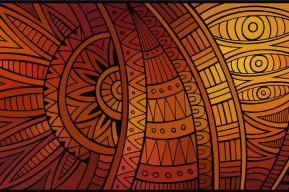Event
"Her Education, Our Future" premiere screening at UNESCO
Thursday 7 March at 7 pm at UNESCO HQ, Paris, France.
- Duration: 60 min
- Film in its original version, with English and French subtitles, and simultaneous interpretation in Chinese
- Registration required
Attend the premiere screening
The transformative power of education
"Her Education, Our Future" is a documentary film produced by CGTN in partnership with UNESCO. It tells the story of four girls on three continents - Anee from Pakistan, Mkasi from Tanzania, and Fabiana and Tania from Brazil. All the girls have been involved in UNESCO programmes aimed at widening their access to education, enhancing their skills for life and work, and expanding their educational and career opportunities.
Anee is from Gilgit-Baltistan, a sparsely populated high-mountain area in the north of Pakistan. She dropped out of school as her parents couldn’t afford her education – only that of her brothers. Her father also didn’t believe that girls should be educated but rather stay home and help their mothers. Anee was reached out to through UNESCO’s Girls’ Right to Education programme, initially funded by the Government of Pakistan (7 million USD) with additional support from Italy, Korea, Norway and the Qatar Foundation. It is UNESCO’s largest programme on girls’ education, and has covered 19 of Pakistan’s most isolated and marginalised districts. UNESCO assisted Anee’s family to overcome the financial barriers to her education, and addressed other challenges she was facing. Her parents have re-enrolled her in school, and are supporting her to continue her education. Anee wants to be a doctor – the dream she has held since a child.
Mkasi is from Pemba, a Tanzanian island forming part of the Zanzibar Archipelago. Mkasi is the sixth of eleven children. She left school in 2014, as she didn’t score well enough on her exams to continue to high school. Mkasi was connected by a District Social Welfare Officer to the UNESCO-UNFPA-UN Women Joint Programme on Empowering Adolescent Girls and Young Women through Education, funded by Korea. She enrolled into a community-based entrepreneurship and alternative education programme supported by UNESCO that enabled her to gain new vocational skills. She now works as a seamstress, and makes handicrafts and soap which she sells at the market. She wants to become a designer and to open a clothing store – the first in her area – and sell her soap locally and abroad. She is economically independent now, with skills as she says “that I’ll carry with me wherever I go.”
Fabiana and Taina are from Brazil. Fabiana from Catu is a university student, and Taina is a university student from Ilhéus. They both have a keen interest in science, technology, engineering and mathematics (STEM) education but have faced different barriers to pursuing studies in these fields. Fabiana must rise at four every morning to go to school on a road which is plagued with robberies targeting students and passengers. Taina has faced racism and discrimination, and went through a rebellious phase in her teenage years which took her away from her studies and down a harmful path before finding her way back. Both have been engaged in UNESCO’s EDUCASTEM2030 programme, which aims to close gender gaps in STEM education. Through this initiative, Fabiana and Taina have been connected to mentors and role models, have expanded their skills and gained confidence in their abilities. Fabiana has a full scholarship to study production engineering in the Fall – the same studies that Taina is currently pursuing. Tania is also a student leader now, sharing her own story and building more pathways for girls in STEM in Brazil.
Learn more
Learn more about UNESCO's efforts in search of empowering women and girls through education.





